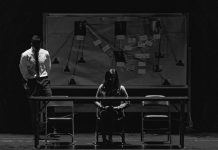Bannu: In a region where the people’s representatives in the National Assembly and Senate cannot legislate on matters related to its problems, the “elected members” of the Federally Administered Tribal Area (FATA) apparently enjoy a high price when it comes to horse-trading for the Senate elections on March 5, 2015.
The price for a FATA seat of the Upper House or Senate has reportedly reached Rs.250 millions. A sources inside the Parliament Lodges who wished not to be named because he was part of the deals said 11 members of the National Assembly from FATA were divided into two groups of six and five each. The 11 MNAs from FATA will elect total eight Senators from FATA.
“Differences are not over the rules but over the prices of the seats,” the source told News Lens Pakistan, adding that the rates may soar up if competition gets tougher.
According to the source, an ex-MNA had done the deal with the group of ‘five’ for a seat in the Upper House at about 200 millions rupees but he had been asked to seek support of the sixth vote on his own.
“Most probably, the sixth vote would cost him no less than 50 millions rupees,” the source said, adding that there were more powerful (financially) candidates in the field who would be prepared to pay more.
The source said candidates wandered around the Parliament Lodges with bags full of cash, getting in and out of the legislators’ suites.
The senate elections will be held on Match 5th, where half of the members of the Upper House would be retired after completing six years in the Senate.
Malik Qismat Khan Wazir, a candidate for the Senate, told News Lens Pakistan he had heard about money exchanging hands but he hadn’t done it himself. “I am not a billionaire,” said Wazir.
He also said there are two groups—one is of those who have some connections with the political parties and the other is of the independents.
“I have submitted my papers but I am not sure if I would be elected because money makes the mare go,” Khan said with a hint of disappointment and frustration.
According to reports, more than 45 candidates have submitted nomination papers for the Upper House. 20 of them have been approved by the Election Commission of Pakistan.
Four FATA senators will retire on March 5, 2015. They are federal ministers: Abbas Afridi, Haji Khan afridi, Abdul Rashid and Idrees Safi.
Haji Sher Khan Sarhadi, a political figure and Jirga member from North Waziristan Agency, said most of the candidates were either ex- MNAs or ex-Senators who wanted to get into the Upper House at any cost.
“They cannot live outside the parliament,” he said.
The purpose for the creation of the Upper House is to give equal representation to all the federating units since the membership of the National Assembly is based on the population of each province. Equal provincial membership in the Senate, thus, balances the provincial inequality in the National Assembly. For a region that is “less than equal” to begin with – due to its ambiguous status in the Constitution of Pakistan – FATA representatives compete for the promised “equality” with gusto.
Sarhadi said that the FATA MNAs were eager to sell their votes as they are quite “poor”.
“We are given no funds from the federal government while the governor Khyber Pakhtunkhwa gets the lion’s share of the Annual Development Plan (ADP), previously at the disposal of FATA MNAs,” a FATA MNA told News lens, requesting not to be named as the group has pledged tight secrecy around the deal for seats of the Upper House.
Both groups of the Lower House members were reportedly reluctant to bring forth their relatives as candidates because they wanted to make money instead of making senators.
Earlier in the Senate polls of 2012, deals were finalized at the cost of Rs.160 million per seat.
Meanwhile, a leader of Pakistan People’s Party Akhunnzada Chattan from Bajaur Agency said he was worried for the use of money in Senate elections.
“Due to the few greedy figures, the tribal people are dubbed opportunists but we have mobilized students and workers of all political parties to condemn the horse-trading to put pressure on those engaged in it,” said Chattan, adding that he will try his best to stop the practice of bargaining in the democratic process.
He also expressed helplessness to prosecute the horse-traders because the courts or Election Commission wanted proof.
“How can we bring proof: These are secret deals that everybody knows about,” he said.
He also named the senators who wanted to be members of the Upper House just to make money and multiply their properties.
He however admitted there were authentic reports about money changing hands to secure Senate seats but he said he had never been part of such deals.
Unlike the rest of the country where MNAs and MPAs vote for the senators of their choice, only MNAs from FATA vote to elect the senators from the same area as there are no MPAs from the border region in any of the provincial assembly.
The use of cash in the National Assembly and the Senate elections is not a new phenomenon among the FATA parliamentarians.
“Before 1997, when the people of Fata had no right to adult franchise, the candidates for the National Assembly would easily buy a limited number of Maliks (then voters in the tribal areas) and would get a seat in the Lower House,” says Rehmatullah Shabab, a political analyst and expert on FATA affairs.
He said thanks to former president of Pakistan ,Farooq Ahmad Khan Laghari, the people of FATA got the right to vote for representatives through an ordinance in 1997.



